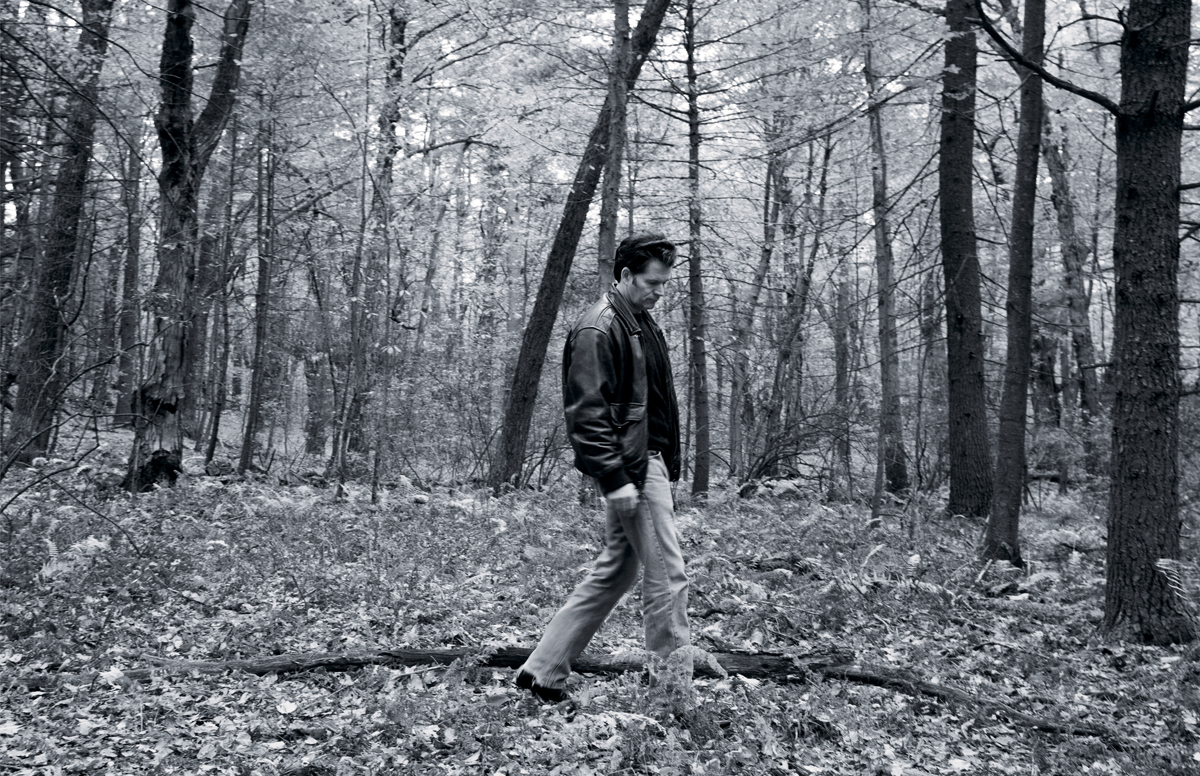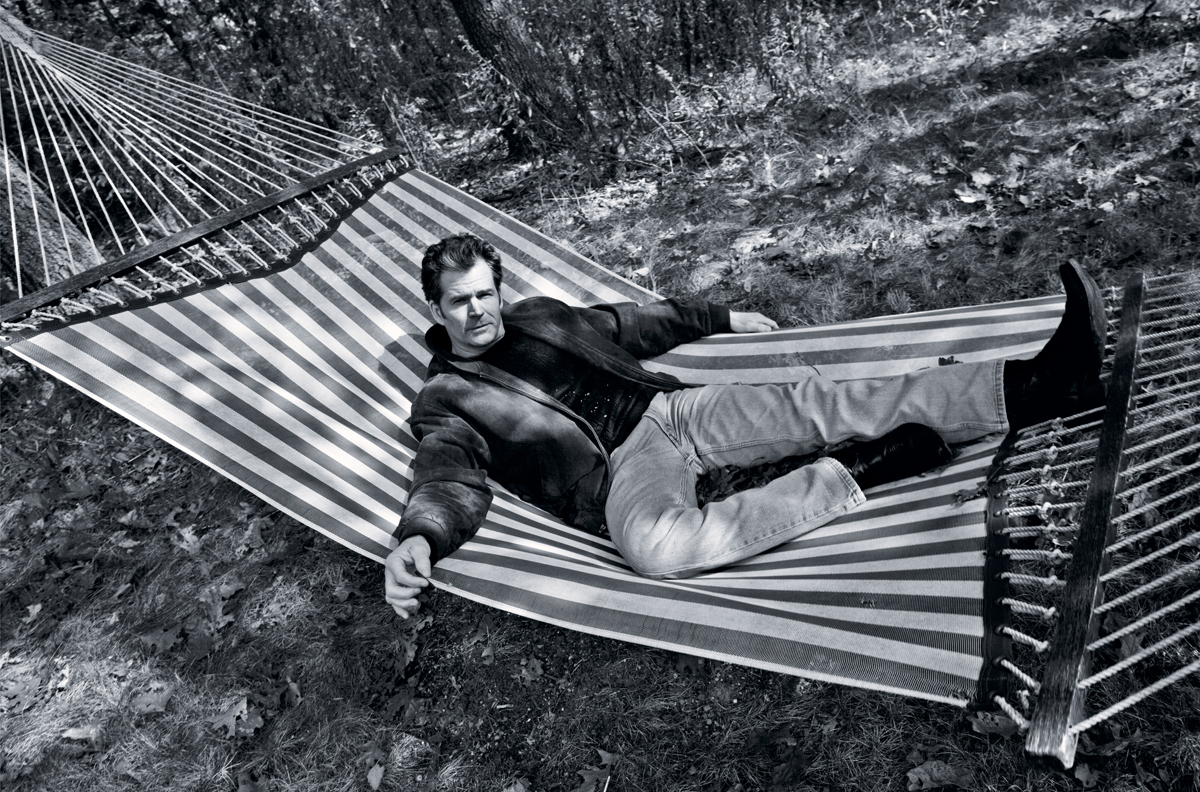Baser Natures: Andre Dubus III Profile

Dubus’s characters gain our sympathies in part because the writer sympathizes with them so much. “I’ve always been drawn on a human level to people on the outside,” he said.
Having a daughter has brought this into sharper relief, as Ariadne and her friends grow into young women. “As a father, it’s been remarkable to watch,” he said as we drove along Newburyport back roads with old Colonial houses on large pretty lawns. “One of the disturbing parts—it’s mainly beautiful—but one of the disturbing parts is I’ve watched them all blossom into womanly bodies and I’ve seen men check out these young women walking down the street and I want to kill them.” The way he thinks about it, seeing a 16-year-old girl with a woman’s body is like seeing a child driving an 18-wheeler. “You think it’s a big old 18-wheeler, but no, it’s a child driving, and don’t look at that ass.”
Dubus prides himself on making the right decisions, on self-restraint. He has never cheated on his wife, Fontaine: “I’ve slept with the same woman for the last 25 years,” he said. His candor when talking about fidelity doesn’t come across as back-patting or holier-than-thou. It’s a choice he’s made. But he peoples his work with characters whose decisions have flung them down paths impossible to double back on.
They gain our sympathies in part because Dubus sympathizes with them so much: Even if a character ends up murdering someone by the end of the story, there is a sense that they started out aiming to do the best they knew how. “I’ve always been drawn on a human level to people on the outside,” Dubus said as we were talking about his story “Marla,” in which an isolated and insecure bank teller struggles with sex and love. Where his earlier work focuses on more-obvious outsiders (inmates and terrorists and bad seeds), the people in Dirty Love aren’t on such high-stakes margins. These domestic stories take place in North Shore towns. They examine how easy it is to fall away from one another, not in dramatic moments in which we’re untethered from the human community, but in small, quiet ways.
“We tend to write about what haunts us, what scares us,” Dubus said. In part, he said, Dirty Love is about “what a goddamn job it is to be in a monogamous relationship.” In the opening novella, “Listen Carefully as Our Options Have Changed,” a wife cheats on her husband after 25 years of marriage. He quoted Springsteen: “‘You’ve got to learn to live with what you can’t rise above.’ To me, man, that is the central challenge of being married. Where’s that line? What’s fair to ask him or her to change? When do you cross the line in wanting someone different than you have?”
Dubus once considered changing his name to Stoneham Lawrence. He’d just given his first reading back in 1989, the year he released his debut collection, The Cage Keeper and Other Stories. When it came time for questions from the audience, no one asked about the book he’d written and just read from. All the questions were about his dad.
Dubus’s father—a three-time divorcé and womanizer also named Andre Dubus—left the family when the younger Andre was about 10 years old, and was absent for much of his son’s childhood. It left a mark. Fatherlessness featured heavily in Dubus’s memoir Townie. And you can hear the echoes of that absence when Dubus describes the big graduation party he and his family threw for his daughter, Ariadne. Dubus recalled that when he graduated, his father wasn’t there. He couldn’t understand it, he said: “I’d fucking crawl on rusting roofing tacks to Ohio to see my son graduate from college.”

But the elder Andre was also a celebrated writer. Though never a commercial success—he published only one novel, devoting himself instead to the art of the short story—he was well known and well loved among peers such as Kurt Vonnegut and John Updike. He won fellowships from the Guggenheim and MacArthur foundations, as well as many literary prizes, and when he died at 62, he had an obituary in the New York Times.
So in 1989, at that first reading, the name “Andre Dubus” still meant the father, not the son. Driving home up I-93 afterward, the son wondered if he could ever escape his father’s name. He passed signs for Stoneham and Lawrence, and thought that as pen names went, Stoneham Lawrence wasn’t bad. But he couldn’t do it. “When I’m writing I feel so genuinely like me—I couldn’t put a fake name on that,” he said. “I sensed there are some lessons we are supposed to learn and we are not supposed to duck our fate too much. But God, do I hate that III on my name.”
Now that Dubus has his own Guggenheim Fellowship and constellation of prestigious prizes, the pressure of comparison with his father has eased. But with Dirty Love—with these intimate short stories and novellas about the difficulty of sharing lives, about betrayal and fidelity and the emotional violence we inflict on the people we love—intentionally and not, Dubus is treading toward the emotional tenor of his father’s work, in setting, theme, and situation. Dubus the elder wrote a story called “The Fat Girl”: “Once when she was sixteen a boy kissed her at a barbecue; he was drunk and he jammed his tongue into her mouth and ran his hands up and down her hips.” About Marla, the heavyset virgin from Dubus III’s story: “Once in a crowded house, a drunk boy had wedged her against the hall wall and pressed his hands into her breasts under her sweater.” In “Dirty Love,” teenage Devon comes to know the power she holds over young men, in taking them into her mouth: “How could she not lean down and wait for him to unbutton and unzip his jeans, his soft grunts, his hand on her back like he was her patient and she was the only one who could cure him.” From Dubus the elder’s “Finding a Girl in America”: “Lori…knows that she is ministering to him, her lips and fingers and now her mouth medicinal.” In the opening novella of Dirty Love, Laura voices part of the reason she felt pushed to stray from her marriage: “You treat me like I work for you, Mark. You always have.” From his father’s novella “We Don’t Live Here Anymore,” about love and infidelity between two sets of couples and friends: “He was treating housewife like a profession, like a lawyer or doctor or something, and that’s wrong.” These echoes exist in the two men’s work—shared blood, shared name, shared calling—but Dubus III sounded ill pleased when the overlap was raised.
A just-detectable tightness came into his voice, as though he’d been reminded for the third time to do some boring necessary task and was trying to maintain patience. There was talk of shadows, long ones, dark ones, ones that Dubus III has come out from under. “Nobody wrote better than my father about people’s hearts in relationships,” he said. And Dubus III has sold many times over his father’s entire body of work, which likely goes a long way in making him feel that he casts a shadow of his own. Dubus writes in “Dirty Love”: “How can anyone ever be clean with family? Blood is too dirty, dirty with love that can so easily turn to hate.”
“Do you mind if we make a quick detour?” Dubus asked on the way to the lumberyard. He had a big inflatable inner tube in the back of his truck, and needed to drop it at his mother’s place for the week she was about to spend on Lake Winnipesaukee. We entered her home, a cat curled like a comma on a chair by a sofa, good old planks of wide floor and exposed beams of a house built a couple hundred years ago. Dubus and his mother embraced. Patricia Dubus has short white gray hair and warm welcoming eyes and her Louisiana accent sounds like butter melting over something sweet. While Dubus bungeed the inner tube into the back of her Tacoma, she chatted about how she wanted to go to trade school, how her father could do anything with his hands, “a handsome Scotch-Irish son of a bitch,” as Dubus described him, who was a third-grade-educated pipe fitter. She wasn’t allowed to go to trade school, and uses her hands to make beautiful quilts instead. “I wanted my boys to be able to use their hands,” she said. When Dubus came back from outside, they talked about the paint job Dubus’s nephew had done. They critiqued the work, looked at the seam where ceiling met wall. “I had to teach him what cutting in was,” Patricia said with a laugh.
Back on the road, I wondered if Dubus remembered his mother encouraging him and his brother to do work with their hands. He recalled instead the pride he saw in her when she visited a deck he and his brother were building. “It was juxtaposed with her ex-husband, who built beautiful stories, but….” The elder Andre, he explained, could craft a plot but not a deck.

